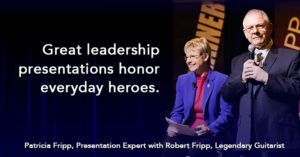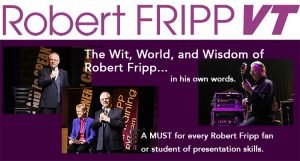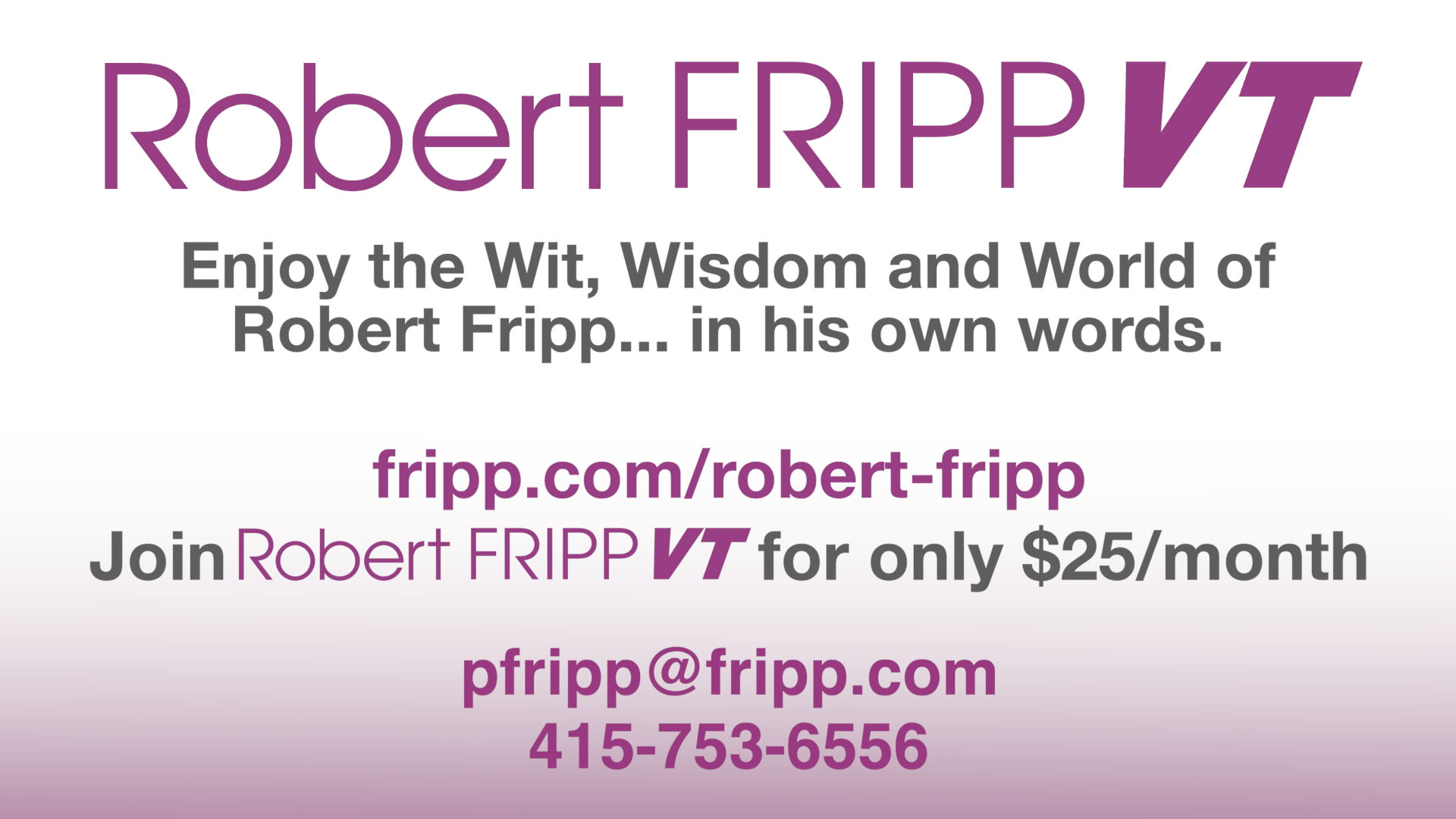
As you may know, my brother Robert Fripp played on David Bowie’s Heroes. In our presentations on How to Be a Hero For More Than One Day, I ask Robert questions and he gives brilliant and thoughtful answers.
As one ordinary hero to another, I hope you find this as thoughtful and brilliant as I do.
PF What does it mean to be a hero?
RF The hero aspires to three things:
the clarity to see what is required of them;
the courage to accept what is required of them;
the capacity to discharge what is required of them.
Clarity, courage, capacity.
Three categories of heroes:
the unlikely, or occasional, hero;
the everyday, or ordinary, hero;
the superhero.
The occasional (or unlikely) hero is one who responds honorably to an unlikely & unexpected event: they rise to an occasion, to a challenge, when it presents itself.
The unlikely hero is called unlikely because their heroism is unreliable: the next time a challenge presents itself, they may not be able to respond heroically.
That is, their heroism is externally driven. The challenge comes from the outside.
The ordinary, everyday hero is reliably, repeatably & responsibly heroic on an ongoing basis.

Although this category of hero is described as ordinary, such heroism is already extraordinary.
The world continues to turn because of the heroism of ordinary heroes.
The superhero is one who directs the way the world runs.
The superhero holds the overview of their particular field of endeavor. They hold the overview of the whole of their undertaking. They see the operation of all departments, on all floors, in all the offices of their corporation.
Not every corporation is fortunate enough to have a superhero. The PayrollOrg has its own superhero – Dan Maddux.
Note: the heroism of the ordinary and superheroes are internally driven. Their heroism grows from a sense of interior challenge and necessity.
Tune in next week, when Robert Fripp answers the questions, “How do we become a hero?” and “What is an act of quality?”
If you enjoyed this you will really love The Wit, Wisdom and Life of Robert Fripp
Part two: How Do We Become a Hero for More than One Day? Robert Fripp Tells You How
“Robert Fripp held our audience as tightly as he held his guitar pic.” Dan Maddux, Executive Director, PayrollORG
“There is no more erudite and lovely a rock-n-roller than Robert Fripp … IN HISTORY!” David Murray, Executive Director, Professional Speechwriters Association


